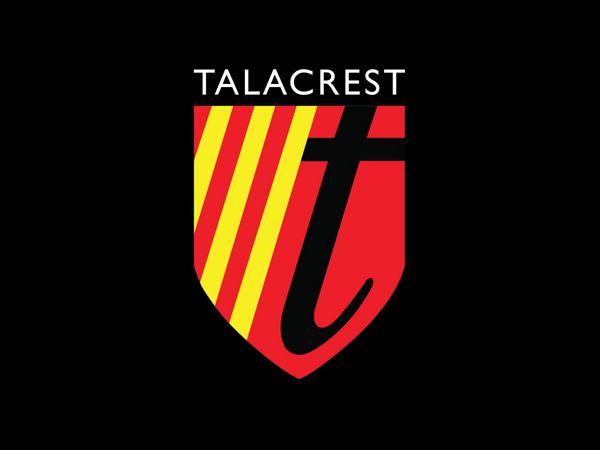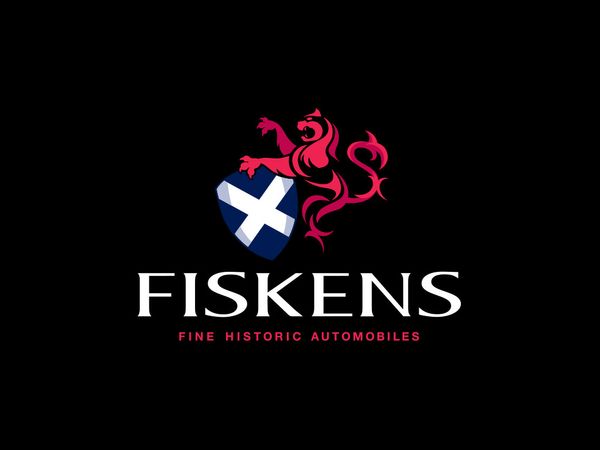10 classic and modern-classic cars poised to rise in value
.
Hagerty analysts use renowned in-house data to predict 10 rising stars of the car enthusiast world
10 cars have been chosen ranging from the everyday Ford Fiesta to the outrageous Lamborghini Diablo
Audi TT, Lotus Elise, and Mercedes-Benz SL represent modern classics likely to increase in value
Citroen BX and Saab 900 also make the cut as interesting, usable classics
Henry Catchpole to showcase the 2023 Bull Market List on The Driver’s Seat, part of the Hagerty’s YouTube channel
Hagerty has revealed the 10 cars selected as the 2023 UK Bull Market List stars. For this annual compilation, experts from the unrivalled Hagerty Valuation Team spend months identifying cars from all eras which offer a great ownership experience while also using their industry-leading market data to determine which of those models may appreciate in value.
The Hagerty Bull Market is aimed at people who want to find, buy, and drive a classic or modern classic vehicle but, the standout advice is always to buy a car they like first and foremost. If the car later delivers a healthy return financially, that should be considered an added bonus.
To compile the report, the Hagerty Valuation Team tirelessly review value changes from the globally renowned Hagerty Price Guide, coupled with sales results and data. The results are then further examined to find indicators that suggest a car is rising in value and is increasingly in demand amongst car enthusiasts.
The selection of cars in the 2023 Hagerty Bull Market is wide and diverse, meaning there should be a car to suit most tastes and budgets. The 10 identified for 2023 are as follows:
Audi TT Quattro Sport (Mk1), 2005–2006
You could argue that the Audi TT Quattro Sport is more show than go, but the changes Audi made to the TT for the special Quattro Sport do make it a better driver’s car than the regular TT, and they undoubtedly make it significantly more desirable to both enthusiasts and collectors alike. The Quattro Sport is genuinely good to drive. Long distance drives are little effort, the steering is positive, the ride well-controlled, and there’s excellent traction. 237bhp makes it usefully rapid. What the TT does, and the Quattro Sport especially so, is combine an ideal balance of driver appeal and ownership appeal with rarity – only 800 ever built – and stunning looks.
Hagerty Price Guide range, Fair to Concours: £5100–£14,800
Hagerty has only been tracking the Quattro Sport since the beginning of the year, but in that time average values have risen from £9950 to £10,075. However, there has been a 17x increase in worldwide insurance quotations in the last five years, and the value of cars we’re quoting has risen by 16 per cent in that time. Auctions are up too, eight so far in 2022, all selling, compared to four in 2021 with one unsold. There are various factors that make a car collectable, and the Quattro Sport has plenty of them – prestige manufacturer, it’s a sporting variant, relatively low production numbers, it’s instantly recognisable, and was aspirational when new. A huge price rise is unlikely, but it should continue to creep up, with low mileage, clean examples with great service history performing best.
Austin Seven, 1923–1939
Herbert Austin dreamed up the concept of a small, cheap car to address the issue of vehicle excise duty, which was levied by the RAC at a rate of £1 per horsepower. He worked with 18-year-old Stanley Edge, drawing up a seven-horsepower (hence the name) car that would seat four and provide escapism. It cost £165 – a little more than £7200 today – at a time when the average worker was taking home £5 a week. On the flat, it is said to be capable of 50mph, but introduce any sudden direction changes at your peril – the saloon body, with its higher centre of gravity, means it sits on the road with the delicacy of a top hat on an Edwardian gentleman. Owning a Seven would quickly see you immersed in understanding how it all works, tinkering with it at the weekends, taking it to events or for a Sunday-lunch run to the Dog & Duck.
Hagerty Price Guide range, Fair to Concours: £8700–£21,100
They are small, simple, affordable to run and repair and jam-packed with character. Yet today, they provide an inexpensive gateway into the vintage, pre-war car scene and also make for a refreshing antidote to modern cars. Sevens are rising in value, but still comparatively affordable – as they always have been. Last year, the average price for a Seven was £10,125 but to date in ’22 that number has climbed to £14,125. This is against a backdrop of more being sold at auction, roughly a third more than last year. Some of this will have been driven by the car’s centenary, which has helped raise its profile, with events such as a parade of more than 100 examples at this year’s Goodwood Revival. It is worth noting that the Saloon is significantly more affordable than rarer sports models such as the 'Ulster'.
Bentley Turbo R, 1985–1997
It was the Turbo R that finally gave Bentley a significant point of differentiation from its long-term partner, Rolls-Royce. Bentley could do refinement, and exceptional quality, but by turbocharging its six-and-three-quarter litre V8, Bentley instantly had the performance edge on any Rolls. Launched in 1985, the Turbo R produced an estimated 328bhp, and somewhere in the region of 400lb ft of torque, somewhat offset by the car’s kerbweight of 2.2 tonnes. In 1987, Autocar timed a Turbo R at a fraction under seven seconds to 60mph, and measured 143mph flat out, but if there’s driving pleasure here, it’s in both the refinement, and in driving both as swiftly and as smoothly as you can get away with. Most of all, though, it's the potential ownership pleasure that will keep you coming back for more.
Hagerty Price Guide range, Fair to Concours: £7700–£23,400
The Turbo R is currently a little below its 2020 peak of £16,800, which seemed to benefit from the post-lockdown ‘revenge-buying’ boom – people who had always wanted a Bentley seemed to perceive them as a cheap entry into the marque. In 2022, values have been steadily rising, and are now back to an average of £15,400. They’re popular at auction, with 57 so far in 2022 – compared to 44 in the same period in 2021. It’s a slow riser but could be up to 2020 levels in the next 24 months. It’s a massive amount of car for the money, and values elsewhere suggest the UK is behind the curve, but this is a car where service history and condition is everything.
Citroën BX, 1982–1994
It takes only moments today to realise this is a proper Citroën to its core. Marcello Gandini’s geometric shape stands out of the crowd. Its predominantly PSA XU engine range is hardy in both petrol, and as here diesel, forms. Motive power in UK models spanned everything from a 1.4-litre petrol to the 16v, 1.9-litre petrol of the GTi (shared with the 405 Mi16), with 1.8 (badged '17') and 1.9-litre diesels, the former offered with a turbocharger. Our Bull Market car is the non-turbo 1.9, driving through a five-speed manual gearbox. Quickly the BX shows its strengths: it’s absurdly low-effort to drive, much like a modern car in fact, but packed with character, and in diesel form, running costs should be low too – 60mpg is apparently well within reach. The BX is a car that ticks numerous boxes in 2023: bargain prices, modern-car utility, iconic 1980s design – and a genuinely charming and relaxing drive.
Hagerty Price Guide range, all variants, Fair to Concours: £800–£8100
The BX is a fairly new one for Hagerty – which began tracking it in the Price Guide in 2022. But in that time, the average price has gone up, albeit by a modest £25, from £2125 at the start of the year to £2150 at the time of writing. We’re expecting values to increase slightly, probably keeping pace with inflation. It could, however, benefit from some high-profile sales – like the Group B homologation BX 4 TC that sold at Artcurial in July for €77,480. This was a special car: one family ownership from new, and one of only 40 made, but it could raise the profile of the model, especially in France.
Ford Fiesta (Mk1), 1977–1983
Ford recently announced that the Fiesta has turned its last wheel, and the current, seventh generation would be the last. Other than the badge and the name, there really isn’t much that links the first and last Fiestas – this is no Golf-style lineage where a clear seam of heritage runs through each model, and Ford has reinvented the car several times over the years. Hagerty can’t even claim the original was the best, but along with perhaps the second generation, it’s a genuine classic car, as the earliest cars are now 46 years old. You can’t pick them up for a couple of hundred quid any more like you used to, but that enduring popularity – and the announcement there will be no more Fiestas where this one came from – mean buying a good one today has never looked like a better idea.
Hagerty Price Guide range, all variants, Fair to Concours: £1400–£19,100
The Fiesta’s an instantly recognisable classic and the prices of performance models, like the Supersport and XR2, are already rising. Even for humbler cars like our 1.1 Popular Plus, prices are on the way up – a pre-Covid average of £3625 has risen to £4325, not much in monetary terms but still a 19 per cent increase. What hasn't yet been seen is a breakout sale when an immaculate, ultra-low mileage example of a sporting model Fiesta reaches a record price. Hagerty observed this pattern recently with the Ford Focus and before it the Capri, Golf GTi, Peugeot 205 GTI and other similar cars. Once a very special Fiesta (most probably a Supersport) makes £30,000 or more, this is likely to pull up the values of all early, high-quality standard model Fiestas.
Lamborghini Diablo, 1990–2001
This most imposing of Italian bulls could be yours for a fraction of the cost of some supercars it sparred with when new, namely the Ferrari F40, Porsche 959 and, later, Jaguar XJ220. Now is not the time to debate what has influenced that trend to date, but all the signs are that the Diablo’s standing in the market is set to change. The car was designed by Marcello Gandini, when Lamborghini was under the ownership of Swiss brothers Jean-Claude and Patrick Mimran, who initiated the project to replace the Countach, in 1985. But by the end of 1987, Chrysler had taken over Lamborghini, and it charged Tom Gale with refining Gandini’s early work, which was deemed to be fussy. Whatever was changed must have worked, because there is a simplicity to the pure brutality of an early Diablo that is a wonder to behold and will draw a crowd wherever it goes. It is both dramatic and useable and represents tremendous value for money in its part of the market. We’re left with the impression of a supercar that has been criminally overlooked – yet once you drive a Diablo you won’t be able to ignore it.
Hagerty Price Guide range, base, SV, and VT variants, Fair to Concours: £106,000–£229,000
Diablo values in the Hagerty Price Guide have been flat for some time across the model range and are currently sitting between an average of £137,500 for a standard car to £179,250 for an SV. For a 1990s supercar in today's market, this seems exceptionally low. But get ready for things to change. 45 per cent of owners are from Generation X (compared with 31 per cent across all cars), a group who are now at peak earning capacity and median quoted values have soared in 2022 from £214,000 last year to around £260,000 now. In May, at the RM Sotheby’s Monaco sale, an ultra-rare Diablo GT (limited to 80 examples) sold for €612,500. This stand-out sale could well be a marker, and Hagerty would be surprised if the Diablo was not to rise in value significantly in the next 12 months.
Lotus Elise (S2), 2000–2010
The series one Lotus Elise will always be the icon but today, the clever money is on the S2, which is frequently less expensive to buy but in many ways a better car. Few cars feel so right from the moment you get inside. The 1.8-litre Toyota four-cylinder makes 189bhp, and as a variable valve timing unit, most of those horses are found up-top. It's also, importantly, reliable – but the engine isn’t really the star here. That’s still the chassis, and the steering in particular. Marque experts will tell you some of the S1’s delicacy is lost (and the S2 is a heavier car too), but Lotus massaged the original’s sometimes spiky balance, so the S2 really can be driven with confidence – and with messages flowing through some of the best steering you’ll find in any car. The Elise S2, with its extra reliability, refinement, and ability, may now be the Elise to have.
Hagerty Price Guide range, all variants, Fair to Concours: £11,900 to £30,400
Here’s an interesting one: This revered British sports car is more affordable here than in the US – a standard S2 can be bought for under £20,000, where the median quoted in the US is around £40,000, and has soared recently, up by 34 per cent in the last two years. Quotations are higher too, by 31 per cent over the same period. Millennials love them – around 40 per cent of Hagerty quotes are in this bracket, compared to 21 per cent worldwide. They’re not showing up at auction much (more frequent on specialist sales websites), but value trend lines are all pointing upwards.
Mercedes-Benz SL500 (R129), 1989–2001
This is a car built to the pinnacle of Mercedes engineering know-how as the ‘80s rolled into the ‘90s, a flagship for the three-pointed star brand, that can be found loitering with intent in classifieds for less than £10,000. And because, like SLs before and after, it remained on sale for an extended period (1989 to 2001) there is a plentiful supply and buyers can afford to be picky. There were inline 6, V6, V8 and V12 engines offered, but many believe the V8-powered SL500 to be the sweet spot in the range, as it delivers more oomph than the ’6 without the fuel bills of the ’12. It’s a modern car, but not too modern, the ergonomics are utterly logical, the expansive seats are supremely comfortable, and everything has a heft to it that speaks of quality. There are hints of sporting pretensions, but it is a tourer, not a tearaway, and when the weather is kind and the road is calling, there can be few finer ways to unwind at the wheel.
Hagerty Price Guide range, Fair to Concours: £7800–£32,100
There are plenty of SLs to choose from, and that is perhaps reflected in the number of ‘no sales’ seen at auction. However, prices have been on the rise for the cars that have been snapped up; the post-lockdown average of £14,550 has now risen to £17,475, a 20 per cent increase.
Given its lineage and the obvious qualities a luxurious Mercedes roadster has to offer, the SL ticks many of the boxes that collectors look for. As ever, low-mileage examples with a fastidious history documenting copious mechanical TLC, and the bigger engines, are likely to achieve the greatest increases. Hagerty believes that a further average rise across the board of 20 per cent over the next two years would not be unexpected.
Saab 99 Turbo, 1978–1980
The Swedish brand had built up a small but significant legion of loyal followers, and when the 99 Turbo joined the family, in 1978, that group grew as word began to spread about the wonders of turbocharging. BMW and Porsche had experimented with forced induction before Saab, but it was Saab that brought it to the mass market, and turbocharging would go on to become baked into the company’s DNA. A two-door 99 Turbo appeared in 1979, necessary to homologate the model for rallying, and a five-door would follow. The most pleasant surprise of the 99 Turbo is how feelsome the chassis is, you can push the 99 Turbo to and beyond the limit of the tyres’ grip in complete confidence, and along the way you’ll find a well-balanced, faithful set-up, doubtless born of Saab’s rallying heritage. Alternative when new, alternative today, the 99 Turbo is rare – with fewer than 100 believed to remain in the UK.
Hagerty Price Guide range, Fair to Concours: £4100–£21,700
Given the rally pedigree and engineering excellence, the Saab 99 Turbo remains something of a steal. Just compare it with an early Audi Quattro. Those that are attracted to it are mostly millennials, with 40 per cent of owners in that age group. These aren’t widely available cars, but we have seen a modest increase for 99s, which have seen quotes for all models lift by 4 per cent over the past two years. But when we look at the 99 Turbo specifically, a different picture emerges. It shows a 20 per cent increase in value but remains a rarity. In July, auction house Mathewsons sold a restoration case car, for £5600. The current, average highest value of £21,700 for a concours example is likely to climb to around £30,000 within a couple of years
Triumph Spitfire, 1962–1980
Launched in 1962, the Spitfire is in plentiful supply, relatively affordable to buy, and with good parts availability, there has always been a loyal scene around the two-seat roadster. It’s a car you can enjoy driving, gain that glowing sense of satisfaction that comes from accomplishing DIY tasks, and all the while your money is tied up in a stable investment – over the long term, values have been static, but there are signs good Spitfires are taking off. The idea for the Spitfire was born in 1960. Triumph needed a car that could compete with the Austin-Healey Sprite and MG Midget, and positioned its offering just above the pairing, and by 1962 it had the funds to get its proposal off the ground. It was an instant hit. In 1970 a facelift brought with it a reworking of the rear suspension, to tidy up the Spitfire’s roadholding, and Hagerty suspects all generations of Spitfire will continue to please car enthusiasts for many decades yet
Hagerty Price Guide range, all variants, Fair to Concours: £2800–£28,100
The Spitfire remains a strong favourite of the Baby Boomer group, with 47 per cent of all owners from that generation (against a 35 per cent average across all cars). Will the next generation now discover this car and make it cool again? Values of all Spitfires were relatively static for some time but have started to increase notably: quoted values are up 27 per cent in the past two years. That’s mostly been driven by early cars in concours condition, which are the most valuable, nudging more than £28,100, while the Mark II is snapping at its heels with a top value of £26,300. However, for younger enthusiasts on a budget, cheap cars are still very cheap to buy but often not cost-effective restorations, hence why their prices languish.
John Mayhead, Editor of the UK Hagerty Price Guide, said, “Every year, our Valuation Team analyses thousands of transactions from our 2 million insured vehicles, auction results and dealer sales to see what is on the move. The Bull Market list identifies those cars that may be rising in value, so if you want one, now may be the time to start your search. This year, as ever, we have a really interesting mix of cars to suit all pockets and areas of the hobby, from a veteran car all the way through to a modern classic supercar. We’ve also included a couple of very different British roadsters. As ever, working through the data to compile this list has been a highlight of the year.
James Mills, Hagerty’s UK Media Editor, added “The benefits that the classic car hobby brings all those involved are well documented, from the pleasures of owning and driving your dream car, to the joy of spending time with like-minded people. Yet there’s another benefit that can go overlooked – the £18bn contribution it delivers to the UK economy, which places it alongside the arts and ports industries. Within this landscape, Hagerty is here to help car enthusiasts get the most out of the hobby. We want to empower emotive buying decisions with factual valuations data, so that anyone joining or already in the classic car scene can choose a treasured car with their head as well as their heart.”.
About Hagerty
Based in Traverse City, Michigan, Hagerty’s purpose is to save driving and car culture for future generations and its mission is to build a global business to fund that purpose. Hagerty is an automotive enthusiast brand offering integrated membership products and programs as well as a specialty insurance provider focused on the global automotive enthusiast market. Hagerty is home to Hagerty Marketplace, Hagerty Drivers Club®, Hagerty Drivers Club magazine, Hagerty Drivers Foundation, Hagerty DriveShare™, Hagerty Valuation Tools®, Hagerty Media, MotorsportReg, Hagerty Garage + Social®, The Amelia, the Detroit Concours d’Elegance, the Greenwich Concours d’Elegance, the California Mille, Motorlux, RADwood, Broad Arrow Group and more. In the UK, Hagerty operates the renowned Festival of the Unexceptional event, in addition to RADwood UK and the Hagerty Hillclimb.





















